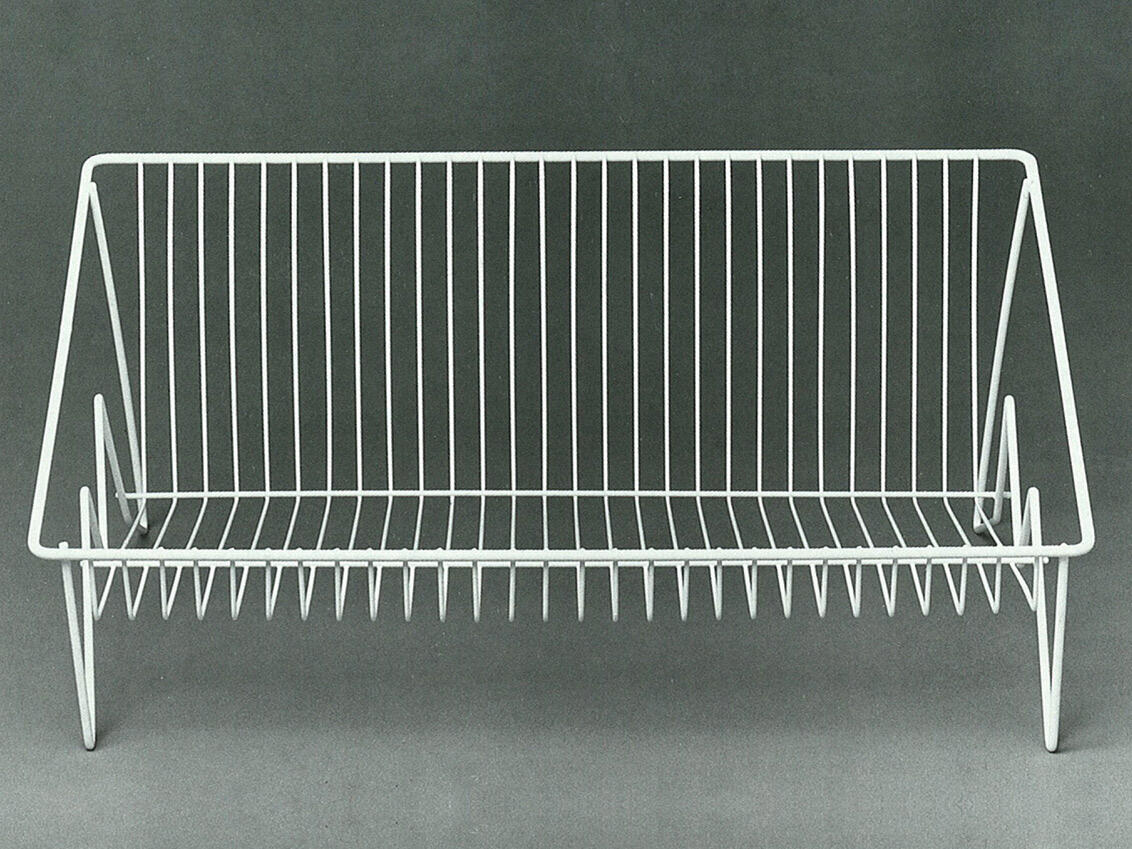



2023 firar Elfa 75 år av innovation och kundfokus. Sedan starten har företaget varit en pålitlig partner för många svenskar - och likt samhället, hemmen och bostadsmiljön - har även Elfa utvecklats genom åren. Men hur har svenskarnas boendesituation, inredning och vardag förändrats från det att Elfas framgångsresa startade till idag?
Från 1948 och fram till 2023 har svenskarnas hem genomgått betydande förändringar. Utvecklingen har präglats av framsteg inom teknik, förändrade livsstilar och samhälleliga trender som har påverkat våra hem och vår boendestandard.
Under 1950-talet var det vanligt med mindre och mer enkla bostäder. Familjer bodde ofta i lägenheter eller mindre hus och hade begränsat utrymme, samtidigt som familjerna var större sett till antal. Ett typiskt hem på den tiden präglades av funktionella möbler, förvaring och fokus på gemensamma ytor som vardagsrummet med enkel inredning. Hemmen var ofta praktiska och hade grundläggande faciliteter som kök och badrum, men saknade inte sällan moderna bekvämligheter såsom centralvärme och varmt vatten.
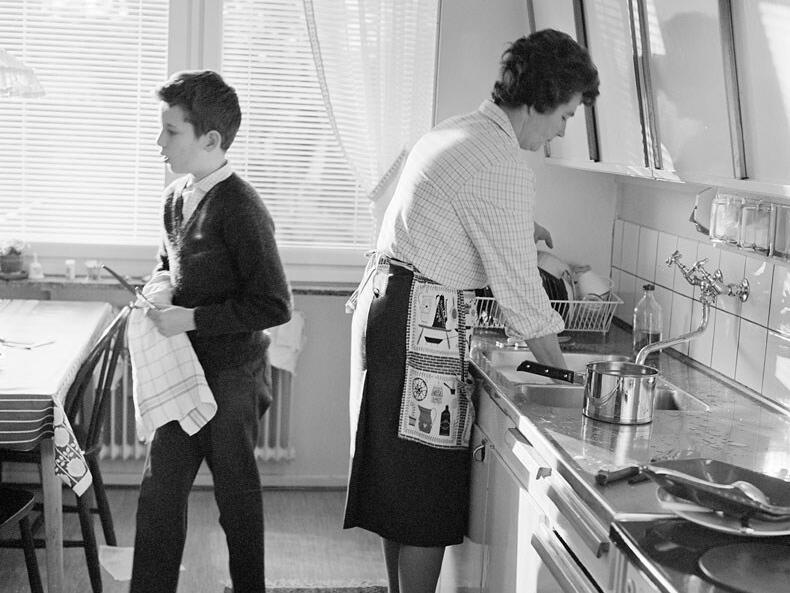

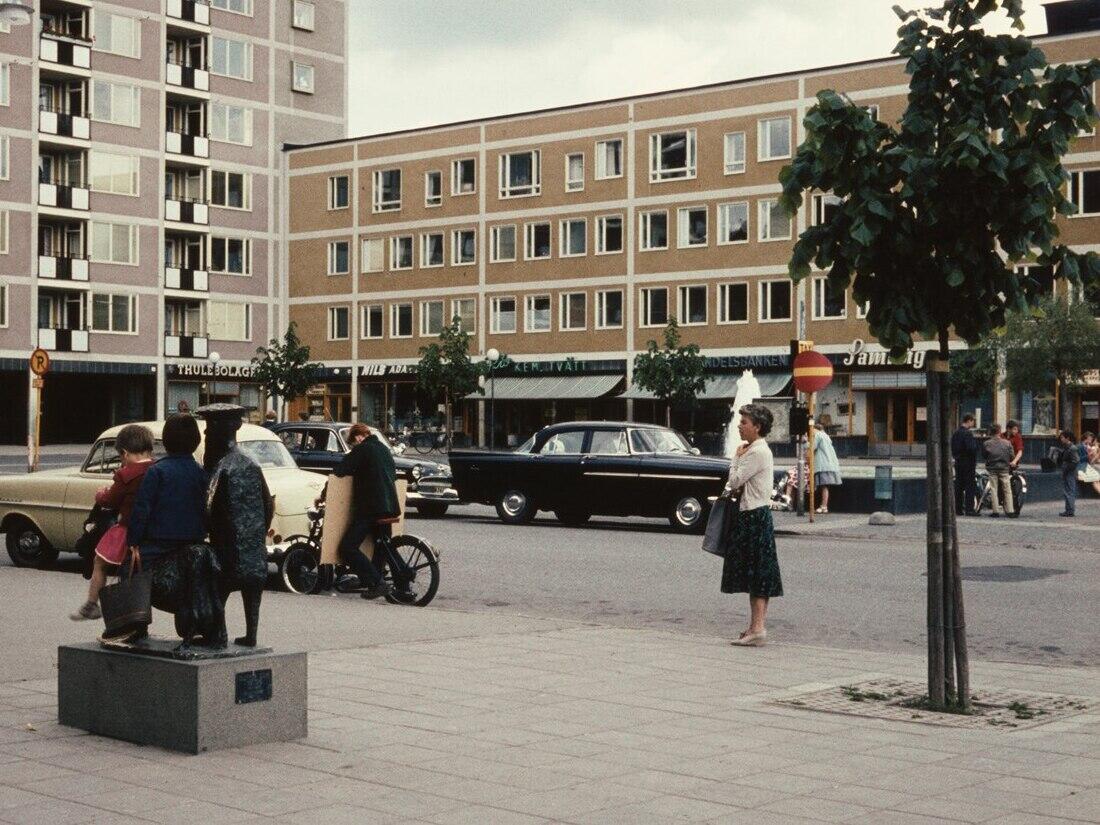

Under 1960- och 1970-talen fortsatte bostadsutvecklingen i och med att miljonprogrammet tog fart. Större bostadsområden byggdes och erbjöd moderna lägenheter och hus med bättre standard och fler faciliteter. Det blev vanligare med separata sovrum för barn och föräldrar samt större kök och badrum. Många hem började också att utrustas med centralvärme och varmvattenberedare, svenskarnas boende blev bekvämare på många sätt.
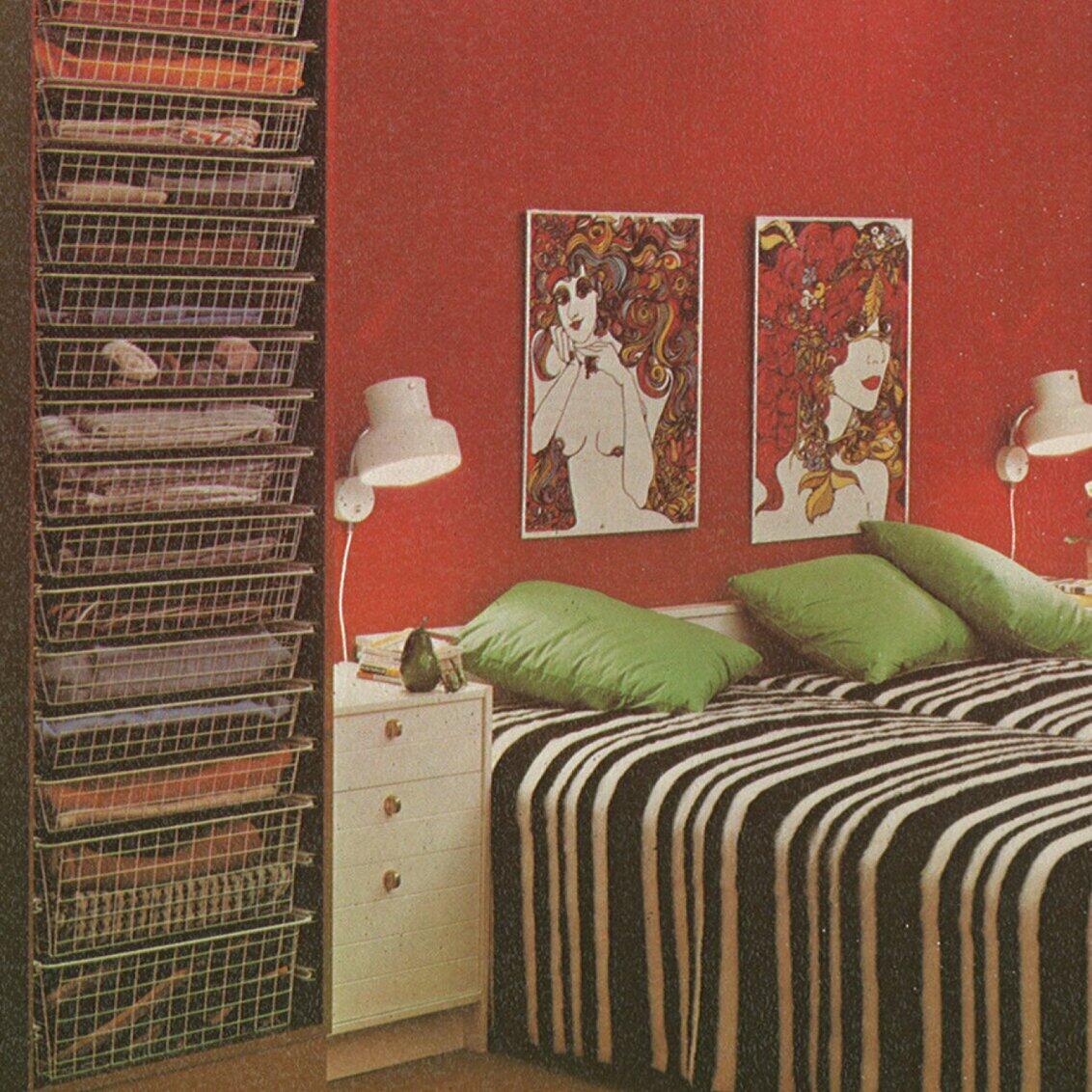



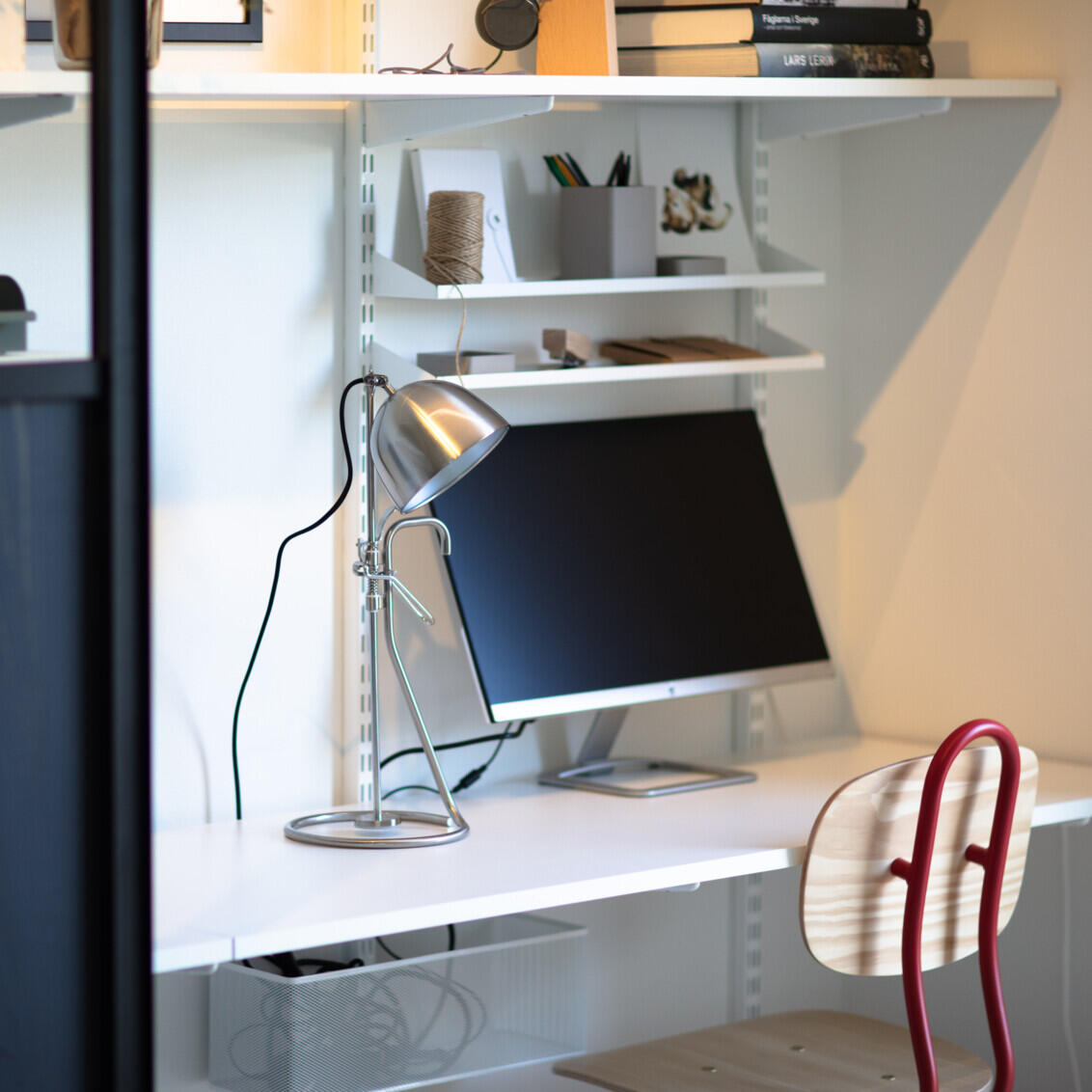

The flexibility of being able to work remotely has become increasingly important and this affects the design of housing. Home offices and customizable workspaces will be in demand. So also technology that makes homework easier.
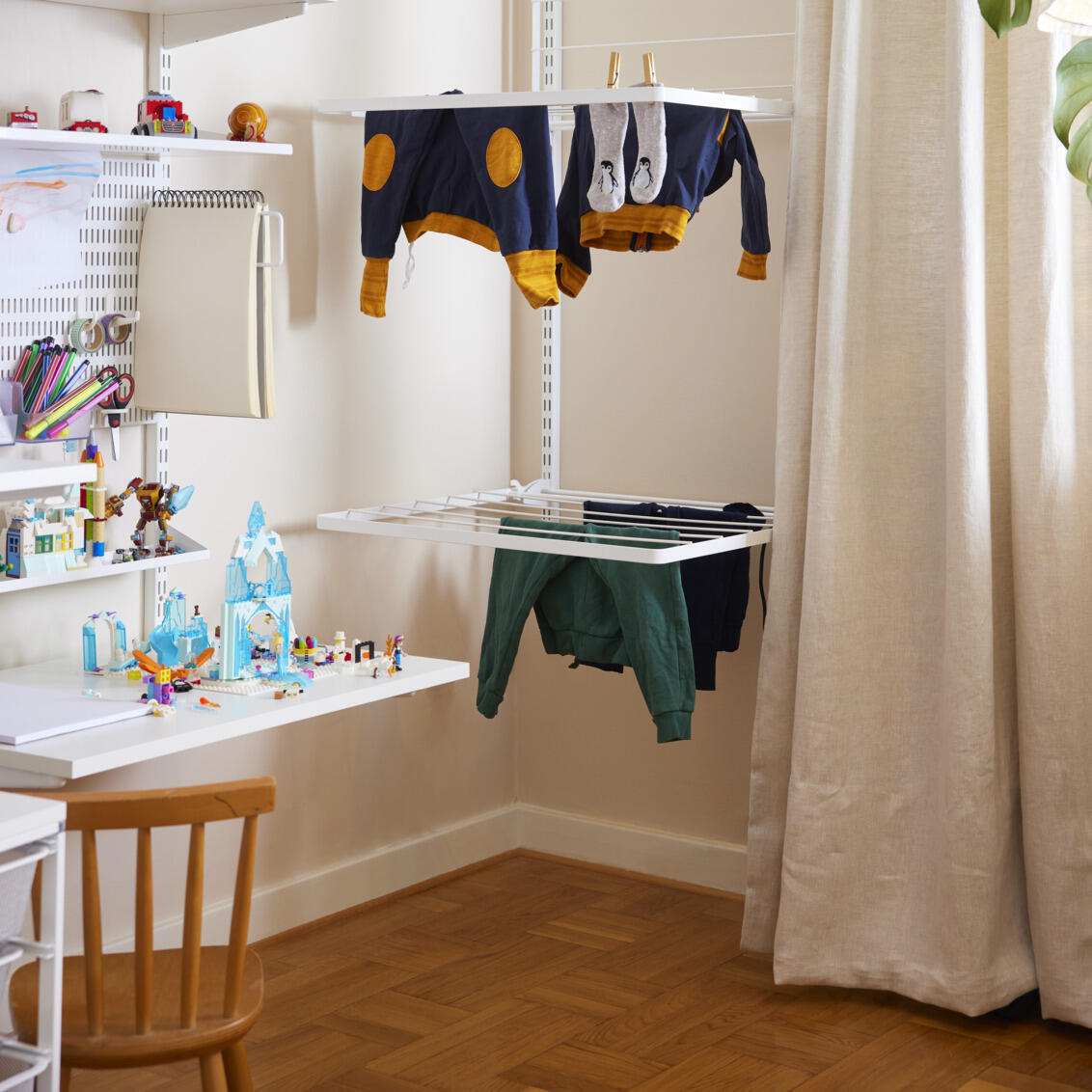

It is not only the work of the future that is flexible. Housing will be more adaptable to meet changing needs and lifestyles. Modular and multifunctional solutions enable remodeling of spaces and storage as needed. The homes will be designed to be adaptable to different family sizes, work needs and leisure activities at all stages of life.
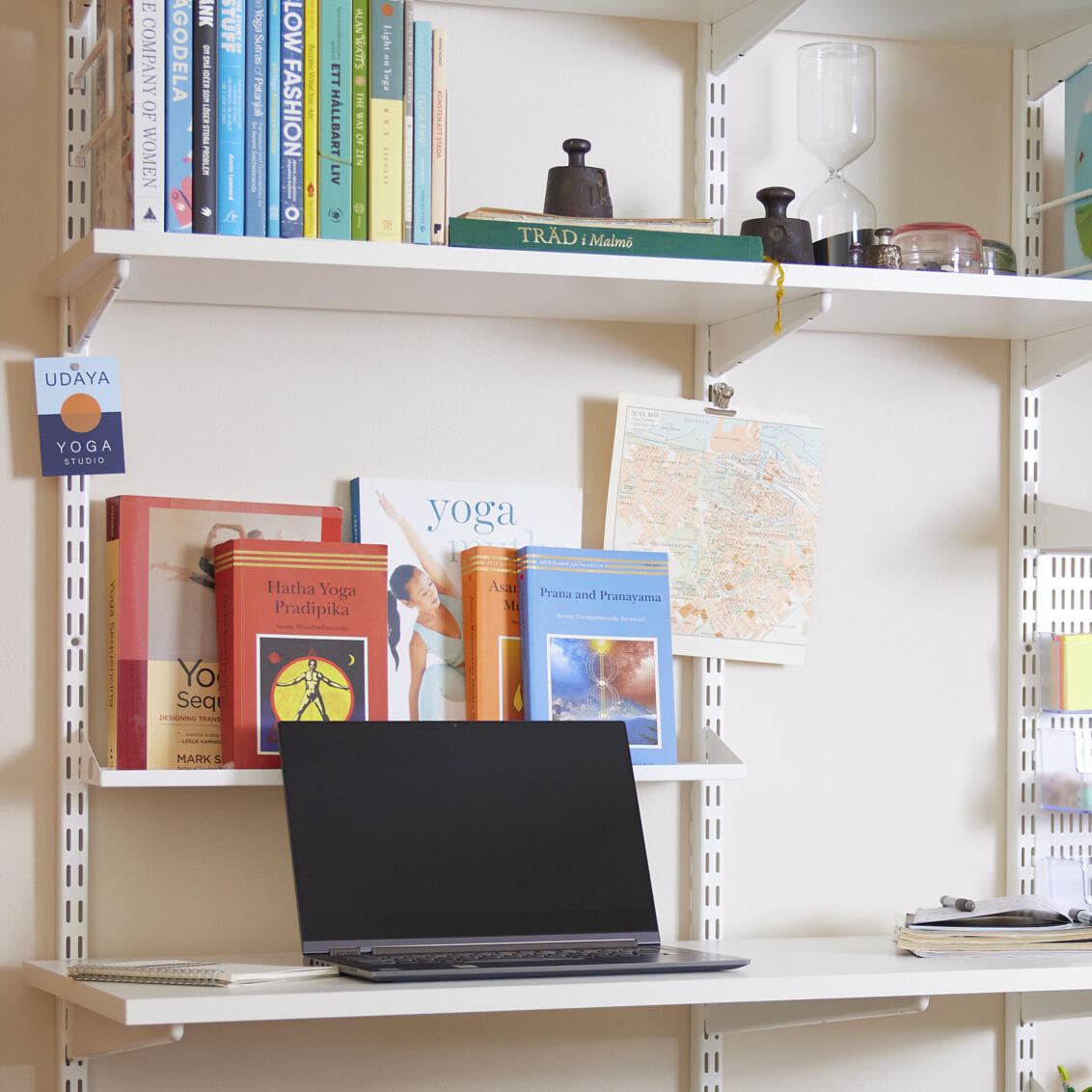

Technology will continue to play a central role in our homes. Smart home solutions such as connected devices, voice control and automation enable easy control of various systems in the home, such as lighting, heating, security and entertainment. The integration of IoT makes it possible to create more adaptable and user-friendly living environments. We simply become more comfortable.
Elfa Insights is Elfa’s think tank where we investigate trends, needs and challenges related to storage. We do this through consumer surveys and by gathering insights from leading experts in sustainable consumption and psychology. This gives us the opportunity to delve deep into our favourite subject, storage, and inspire others to bring order, structure and harmony to their home and thus create space for important everyday things.
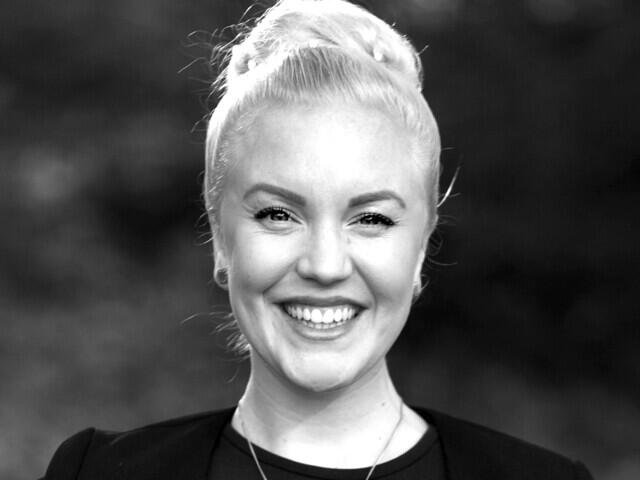

Alexandra Davidsson is a sustainability expert with extensive knowledge and experience in circular economy, consumption and sustainable lifestyle. She worked as general secretary for the association Medveten Konsumtion 2016-2022 and has been named one of Sweden's 33 greatest talents in sustainability according to Aktuell Hållbarhet as well as one of Sweden's 101 most powerful in sustainability. She is passionate about circular economy and creating circulars - a concept for the sustainable consumer of the future.


Anneli Östling is a relationship expert, certified psychosynthetic therapist and change leader who works with midwives in her clinic at Kungsholmen in Stockholm. She is also behind the app Otrohetsakuten and is current with the podcast Stora Relationsguiden, which is used as a midwife. I host also a new app and a book with the same title.


Travaille avec Elfa depuis 30 ans. Elle est la Chargée des Relations Publiques sénior, et l'experte en rangement d'Elfa.
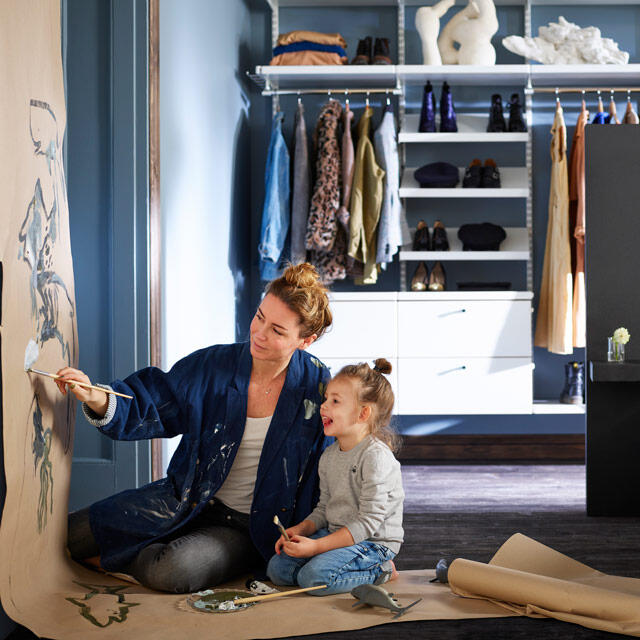
Nos modèles de consommation, nos habitudes et nos valeurs dépendent en grande partie de notre éducation et influencent notre vie d’adulte. Depuis longtemps, cet aspect intéresse les chercheurs, et nous aussi, chez Elfa. Quel rôle joue l’époque dans laquelle nous grandissons sur notre façon de consommer, et quelles en sont les conséquences sur notre manière de ranger ?
En savoir plus ici
Nous avons tous besoin d’un toit au-dessus de nos têtes, mais qu’y a-t-il sous ce toit ? En dépit du fait que la tendance est en partie au nomadisme et que nombreux sont ceux qui fuient les villes et essaient de s’émanciper de leur dépendance par rapport aux autres, la maison, sous quelque forme que ce soit, reste importante.
En savoir plus ici
Quel rôle joue l’époque dans laquelle nous grandissons sur notre habitat, et quelle importance a-t-elle en termes de rangement ?
En savoir plus ici